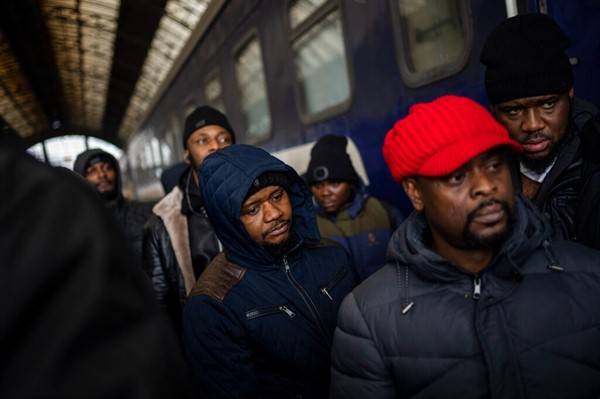Since Russia’s invasion of Ukraine last Thursday, major developments that will reshape global politics both immediately and for years to come have rapidly unfolded one after the other. German Chancellor Olaf Scholz announced that Germany would boost its defense spending this year by $113 billion and meet NATO’s target of 2 percent of GDP in the future. The U.S. and European Union announced a new round of sanctions against Russia that has sent the ruble crashing. And the EU announced that its member states will grant Ukrainians fleeing the war the right to stay and work in the bloc for up to three years.
For many Africans, meanwhile, the war and its second- and third-order consequences serve as a grim reminder of the continent’s marginal place within the international system. But they also represent the hardening of an order historically designed and constructed to exclude Africans from the seat of global decision-making, while imposing on them hegemonic structures, decisions and outcomes they can neither contest nor avoid.
In an interconnected world already reeling from the effects of the ongoing coronavirus pandemic, a tremor in one part of the planet often causes ripples and at times tsunamis in distant locations. As is true for virtually the entire world today, the conflict in Ukraine is already casting a long shadow across Africa and its diaspora.

